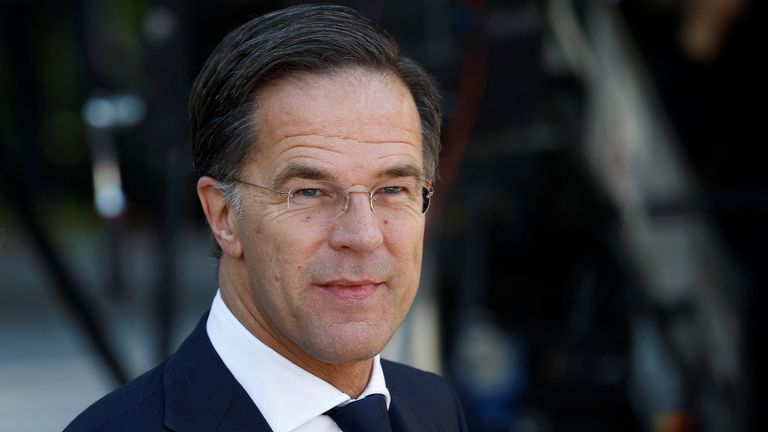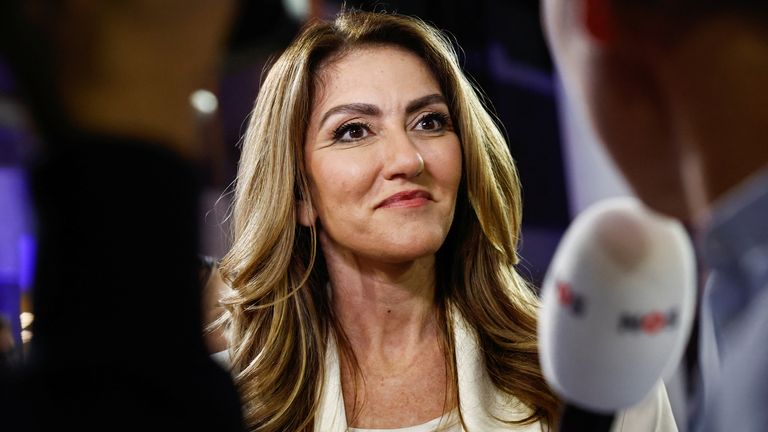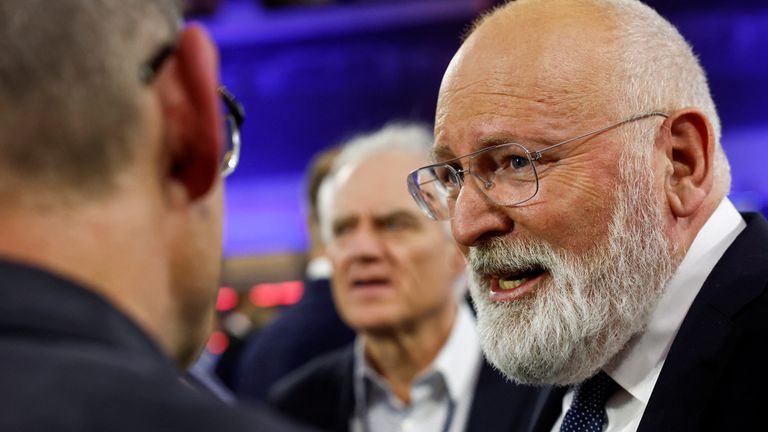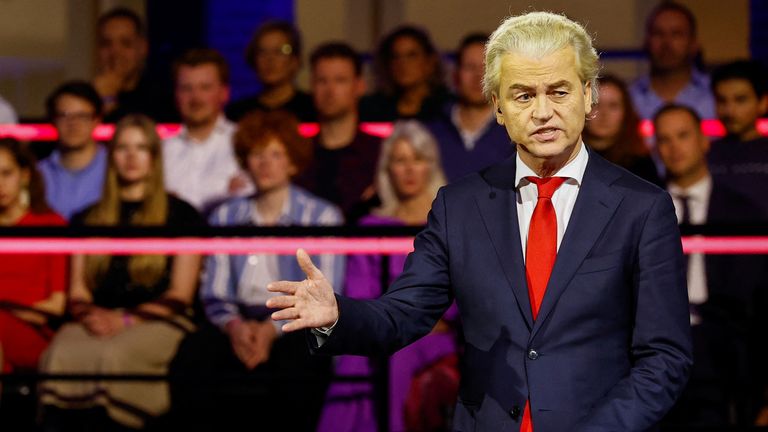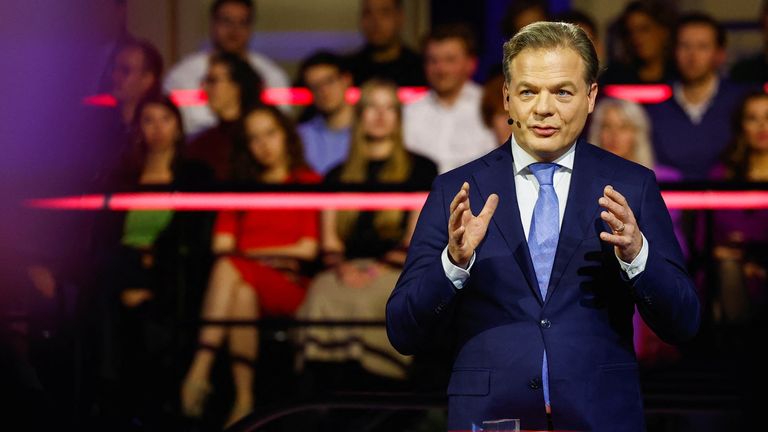[ad_1]
For years, there was a predictable rhythm to Dutch politics – general elections would involve lots of heated debates, coalition talks, and Mark Rutte would end up running the country. But now things are about to change.
When the Netherlands goes to the polls today, the nation will put itself on the path to a new leader. Mr Rutte, who has led the country for the past 13 years, will be replaced by a new prime minister. Or, at least, he will eventually.
Because the other predictable aspect is that Dutch elections are never conclusive.
There are three different parties who are almost neck-and-neck and a fourth that seems to be just a short distance behind.
Then there are some smaller parties, who will pick up their own support. The political calculations and horse-trading will be particularly complex this time around.
At heart, most parties disagree with each other about most subjects.
A debate on the eve of the election proved to be fractious and ill-tempered, marked by frequent interruptions and sniping.
But there is a seam that has run through this election campaign and it is the question of migration – the topic that has shaped many political debates around Europe during the past decade.
It was an argument over migration policy that brought down the last coalition government, led by Mr Rutte.
Former refugee calls for reduced migration and attacks ‘woke politics’
Now his party, the People’s Party for Freedom and Democracy (VVD), has a new leader, Dilan Yesilgoz-Zegerius, who is calling for tougher rules than those promoted by Mr Rutte.
Ms Yesilgov-Zegerius arrived in the Netherlands at the age of seven as a refugee from Turkey – her mother and father fled the country after a coup in 1980. But she now says migration should be reduced and the Netherlands is suffering because of “woke politics”.
Former European Commission vice president has personal popularity
Alongside the VVD at the top of the polls are parties from left and right.
On the one side is the Labour/Green list, led by the former vice president of the European Commission, Frans Timmermans, whose own personal popularity has taken the left-wing group up the polls.
Geert Wilders’s messages remain brash and unapologetic
On the other flank, the far-right Party for Freedom, led by the familiar figure of Geert Wilders.
Mr Wilders’s core messages remain brash and unapologetic – that immigration should stop, and that mainstream governments can’t be trusted. And yet now, at a time when migration has become such a central part of political debate, he has found a significant audience.
Ms Yesilgoz-Zegerius, Mr Timmermans and Mr Wilders could all, feasibly, end up controlling almost exactly the same number of seats in parliament.
New party running fourth in polls
Pieter Omtzigt is the fourth main character in this drama – three months ago he founded a party called New Social Contract, which is basically centre-right on most things but embraces some left-wing social policies.
Despite the extraordinary youth of his party, he’s running fourth in the polls, with the potential to be an important figure in any coalition. He’s now confirmed that, if it came to it, he’d be prepared to be prime minister.
Left-wing parties will coalesce to stop the right
And so, even before the votes are counted, Dutch voters will inevitably start trying to predict the makeup of a future government, and there is a very significant difference from the Rutte era.
He didn’t want to work with Mr Wilders; Ms Yesilgoz-Zegerius has left that door open, as long as the VVD is the largest party. But she also recognises that there are huge differences between their two philosophies.
Left-wing parties will coalesce to try to stop the right (and especially Mr Wilders) from getting into government, which may, in turn, transform Mr Omtzigt into the kingmaker. That, of course, is a debate for another day.
First, the Dutch have to vote. This is an election where polling suggests there are plenty of floating voters, who may only make a decision when they enter the polling station.
The outcome is unsure, but we know that, once again, the country is on its way to a coalition. Once the results are in, then the back-room dealing can start in earnest.
[ad_2]
Source link


